AESA PROGRAMMES
- Building R&D Infrastructure
- Developing Excellence in Leadership, Training and Science in Africa (DELTAS Africa)
- Human Heredity and Health in Africa (H3Africa)
- Africa’s Scientific Priorities (ASP)
- Innovation & Entrepreneurship
- Grand Challenges Africa
- Grand Challenges Innovation Network
- Rising Research Leaders/Post-Docs
- AESA RISE Postdoctoral Fellowship Programme
- African Postdoctoral Training Initiative (APTI)
- Climate Impact Research Capacity and Leadership Enhancement (CIRCLE)
- Climate Research for Development (CR4D)
- Future Leaders – African Independent Research (FLAIR)
- Critical Gaps In Science
- Clinical Trials Community (CTC)
- Community & Public Engagement
- Mobility Schemes: Africa-India Mobility Fund
- Mobility Schemes: Science and Language Mobility Scheme Africa
- Research Management Programme in Africa (ReMPro Africa)
- Science Communication/Africa Science Desk (ASD)
- Financial Governance: Global Grant Community (GGC)
- AAS Open Research
- CARI Programmes
- Evidence Leaders Africa (ELA)
All Affiliates
AAS Fellows and Affiliates are distinguished researchers who represent the Continent’s talent and promising men and women from across the globe
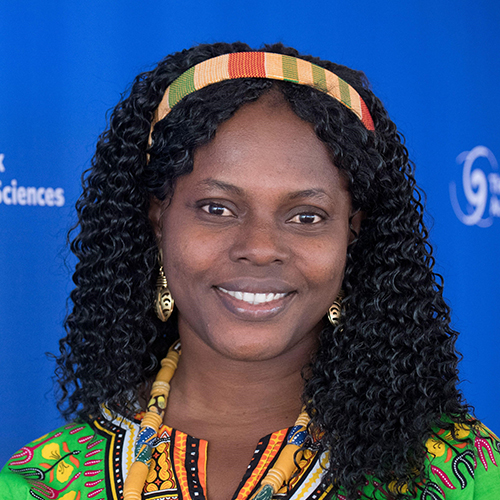
Agricultural & Nutritional Sciences
Nigeria
Cohort 6
Dr. NseAbasi Etim is a Lecturer in Department of Animal Science, Akwa Ibom State University, Nigeria. She holds PhD in Animal Physiology with CGPA of 5.00 from Michael Okpara University of Agriculture, Umudike, Abia State, Nigeria. She belongs to many professional bodies, including, Nigerian Institute of Animal Science, British Society of Animal Science, American Association for Science and Technology, among others. She has conducted several ground-breaking researches which have won several awards in the UK, Sri Lanka, India and Ghana. Dr. Etim has published over 50 articles in reputable Journals and referred conference proceedings. She is not just a Scientist by her research and discoveries, she has also inspired several students in different countries of the world to love and choose STEM (Science, Technology, Engineering and Mathematics). Her great passion and contributions to science led to her selection as Future Leader, 2017 at Science and Technology in Society (STS) Forum, Japan. Her outstanding contributions to global development also led to her selection to attend the 74th UN General Assembly in New York, USA and World Science Forum in Hungary. Dr. Etim was also a Nigerian delegate to the Evidence-Informed Policy Making Seminar in Pretoria, South Africa. In addition to Science, Dr NseAbasi Etim has engineered positive change in other sectors of the global community. She has been a great inspiration to youths and women from different countries of the world through her mentorship. She has also been involved in several advocacy efforts to support women rights
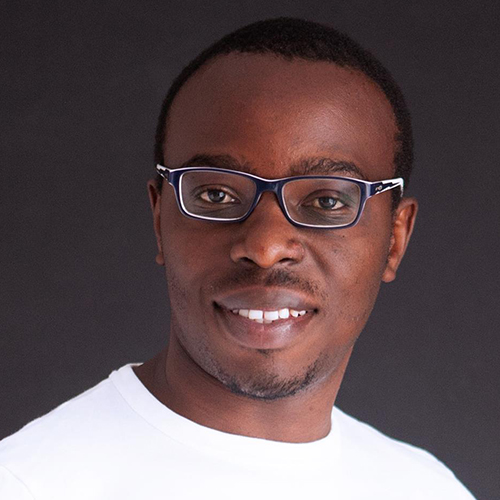
Medical & Health Sciences
Kenya
Cohort 6
Dr. Francis Wafula is the academic director and a senior lecturer at Strathmore University’s Institute of Healthcare Management. For the last 10 years, he worked with government to support policy work, including reforming Kenya’s healthcare regulatory system, developing of a health facilities accreditation framework and developing a strategy and resource guide for PPPs in healthcare.
His current research includes strengthening professional regulation in Kenya and Uganda (with Makerere and Warwick universities); strengthening e-pharmacy regulation in Kenya and India (with the George Institute-India and LSHTM); and strengthening health system response to epidemics (with Red Cross). He co-led the implementation of the recently concluded Kenya Patient Safety Impact Evaluation (KePSIE), the largest trial of patient safety in a low/middle-income setting, covering over 1,300 public and private health facilities.
He holds a PhD in Health Systems and Policy (Open University and LSHTM, 2012), an MSc Public Health (LSHTM), and Pharmacy degree (University of Nairobi), with additional training from IESE Business School and Strathmore Business School. He previously worked as research advisor for Aidspan (a Global Fund Observer), a health systems researcher at the KEMRI/Wellcome Trust Programme, and a pharmacist with the government. He sits on various advisory groups and is a member of the WHO Technical Expert Group on Regulation.
Outside of work, he enjoys theatre arts and soccer, and loves establishing new ventures that promote social interaction. He recently co-established ‘the Chat Room Restaurant’, a quaint establishment that has become popular among professionals wishing to telecommute, network or exchange ideas in a relaxed environment.
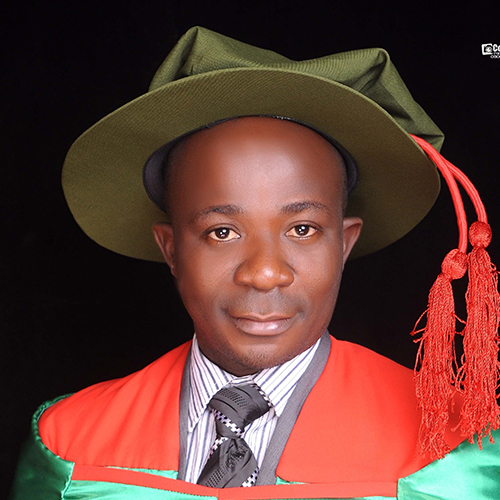
Medical & Health Sciences
Nigeria
Cohort 6
Dr. Franklin Kenechukwu (Nigerian) received his Ph.D in Pharmaceutics (Drug-Delivery) in 2017, from the University of Nigeria, Nsukka (UNN), where he is currently a Senior Lecturer, Research Leader and Managing Editor of African Journal of Pharmaceutical Research and Development. He has co-authored >120 scientific articles/reviews and book-chapters, and has delivered >30 presentations at conferences/workshops/symposia/summits worldwide.
Kenechukwu has received several fellowships/awards/grants/bursaries/scholarships, including the MAM-2020 Travel Award (Australia, 2020), AGNES Junior Researcher Grant (Germany, 2019), WCAIR Travel Award (UK, 2019), INCT-FCx Travel Bursary (Brazil, 2019), BMGF Global Health Travel Award (USA, 2018), Best Abstract Award (2018), ACU Early Career Grant (UK, 2017), CLINAM Fellowship (Switzerland, 2017), Vice-Chancellor’s Doctoral Prize Awards (2017), Best Departmental Graduating Student Award (2007), among others.
Kenechukwu won the TETFund NRF Grant (Nigeria) as the principal investigator, has successfully supervised/mentored several students, has been editor/reviewer for nineteen international journals, belongs to several local/national/international professional associations/bodies and was recently rated as one of the most influencing researchers by Scholarly Output in Nigeria.
During postdoctoral research in Brazil, he completed projects that explored biopolymer sourced from Africa for the development of nanomedicines for malaria and onychomychosis treatment, funded by CNPq (Brazil) and TWAS (Italy).
Kenechukwu is passionate about using his scientific knowledge and experience to improve therapies for patients and applying drug delivery technologies that enable medicines of the future. His research interest is centered on development of advanced lipid-based/polymeric drug formulations. The AAS Affiliates programme will support his professional development and nurture enabling research environments for him through training/mentoring activities.
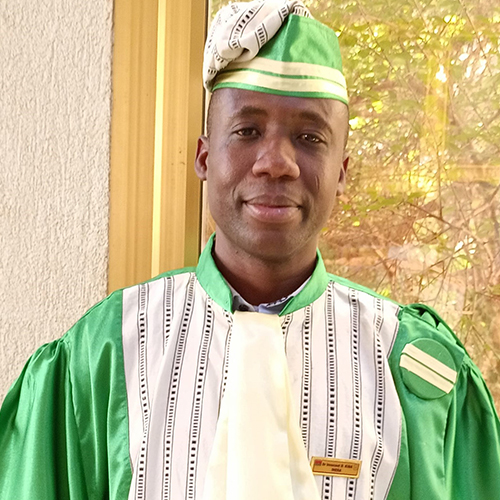
Agricultural & Nutritional Sciences
Burkina Faso
Cohort 6
Delwendé Innocent Kiba is a soil scientist from the “Institut de l’Environnement et de Recherches Agricoles (INERA)”, Burkina Faso. He holds a Ph.D. in Soil Science from the “University Nazi Boni (UNB)”, Burkina Faso. He has worked as a Postdoctoral Researcher in the Group of Plant Nutrition at ETH Zurich in Switzerland. Since 2014, he has served as the coordinator of a project on sustainable soil use in yam systems in West Africa (YAMSYS project). DI Kiba is interested in participatory research on soil fertility management in smallholder farming systems. In addition to publishing scientific papers and brochures for extension, he contributes to the training of students. He participates in the organization of scientific events and regularly communicates at national and international conferences. DI Kiba has served as the president of the soil science society of Burkina Faso since 2017 and has been a member of the Global Land Programme community since 2020. His work has been recognized and awarded on numerous occasions: the scientific prize for Belgium Development Cooperation in 2007; the Swiss Government Excellence Scholarship in 2007; three scientific prizes at the Forum of Science Innovation and Technology (FRSIT) in Burkina; finalist at the Forum for Agricultural Research in Africa (FARA) scientific competition in 2010; and co-recipient of the CSRS-Fond Eremitage award in 2019 for his active participation in partnership research. DI Kiba speaks Mooré, French, English and has a basic knowledge of German.
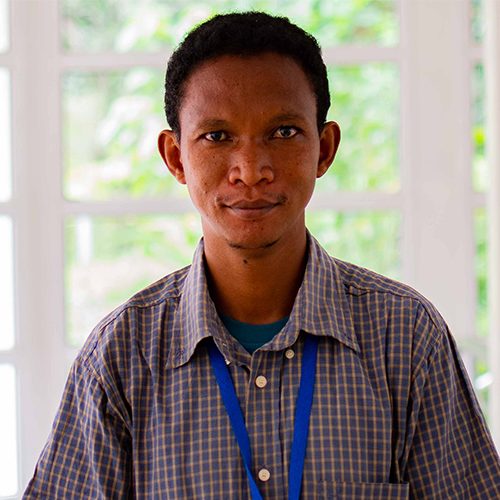
Medical & Health Sciences
Madagascar
Cohort 6
Dr. Luciano Michaël Tantely is a research associate in medical entomology at the Institut Pasteur de Madagascar (IPM). He received a PhD degree in medical and veterinary entomology in 2013 from the University of Antananarivo, Madagascar. Prior to joining the Medical Entomology Unit at IPM to undertake his PhD thesis research, Dr Tantely was accepted in 2008 into the International Master of Entomology programme during which he completed his Master degree with joint supervision from the Abomey-Calavi University (Benin) and the Montpellier 2 University (France). Currently as a research associate at IPM, he leads the research group “Mosquitoes, malaria and arboviroses” within the Medical Entomology Unit. His research interests focus on understanding 1) the taxonomy and the roles of mosquitoes, as potentials vectors of infectious diseases and 2) the role of environment and climatic factors in modulating the distribution and the biology of theses vectors in Madagascar. He is also interested in phlebotomines sandflies, Culicoïdes and bed bugs. Dr Tantely has received different fundings for his research. He was awarded in 2018 a research training fellowship from the Wellcome Trust foundation. Dr Tantely is part of the Doctoral School team of the Life and Environmental Science of the Antananarivo University and has supervised nine pre-Master 2 and Master 2 students. He has published over 25 articles in peer-reviewed journals and book chapters. He serves as a reviewer for several international journals specializing in medical entomology.
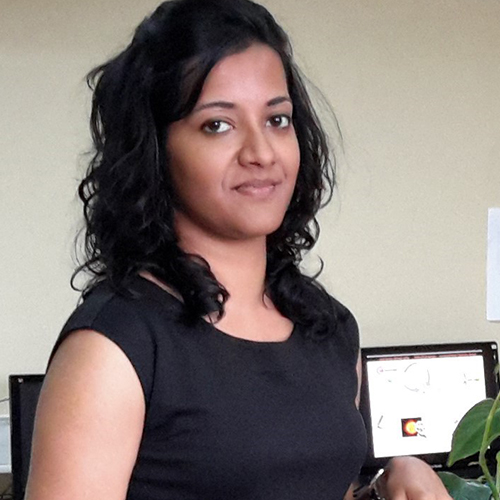
Chemical Sciences
Mauritius
Cohort 6
Dr Lydia Rhyman was awarded a PhD in Computational Chemistry (2013) from the University of Mauritius. She is currently a post-doctoral researcher in the Computational Chemistry Group at the University of Mauritius, Mauritius, and the University of Johannesburg, South Africa. Her research interest lies in the use of Computational Chemistry to solve chemistry related problems which cannot be assessed by experiments and to tackle the sustainable goals. She has 105 publications in peer-reviewed journals, three book chapters and one patent. Her passion for research has helped her to be recognized as she is being invited to present at international conferences as plenary and invited speaker and to give seminars at universities abroad. Besides her interest in research, she is active in the organisation of conferences, seminars, workshops and outreach activities. She is also active in promoting Computational Chemistry in Africa with moderate investments. She promotes science education among girls in secondary schools and at tertiary level. She seizes every opportunity to participate and organize activities for capacity building to encourage students to pursue research to tackle issues that the continent is currently facing. She raises awareness on responsible research practices and integrity, particularly among young African scientists. She was awarded the 2018 Postdoctoral Research Fellows’ Excellence Award from the University of Johannesburg as well as several research/travel grants. She is currently a member of the Royal Society of Chemistry, Organization for Women in Science for the Developing World, a fellow of the African Science Leadership Programme and a Lindau alumni.
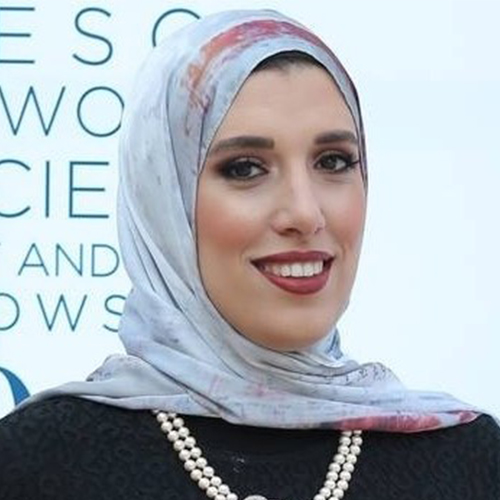
Biosciences
Egypt
Cohort 6
Menattallah Elserafy is an Assistant Professor at Center for Genomics, Zewail City of Science and Technology (ZC). She is also a lecturer of undergraduate and postgraduate students of ZC.
Menattallah did her MSc and PhD in Heidelberg University in Germany. She then started her postdoctoral research at Center for Genomics in 2015 and was appointed as a faculty member in 2020. During her postdoctoral time, she received the L’Oreal-UNESCO fellowship for women in science, Egypt and Levant in addition to the International Rising Talents fellowship by L’Oreal-UNESCO. She was also selected by COMSTECH to attend the 68th Nobel Laureate Meeting dedicated to physiology and medicine, in Lindau, Germany. Moreover, she received several research grants including the CRP-ICGEB Early Career Return Grant, a re-integration grant from the Egyptian Science and Technology Development (STDF) and the joint ASRT-BA fund by The Egyptian Academy of Scientific Research and Technology and Bibliotheca Alexandrina (BA). Menattallah is also a Next Einstein Forum (NEF) fellow and a member of the Egyptian Young Academy of Sciences. In addition, she is a global young academy (GYA) member and a co-lead of the GYA women in science working group.
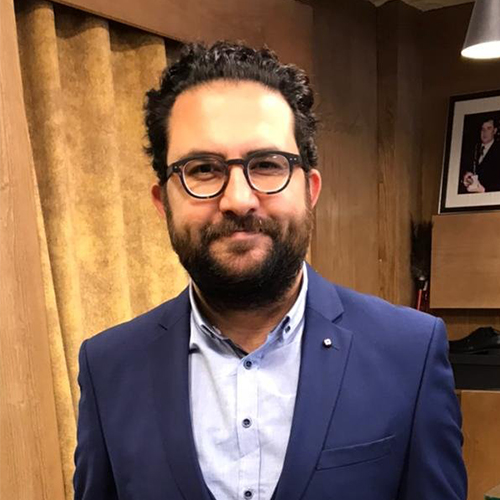
Medical & Health Sciences
Tunisia
Cohort 6
Mohamed Jemaa is a Doctor in molecular and cellular biology with particular interest in cancer. He had the chance to work within several laboratories and institutions in his home country Tunisia and in France, Germany and Sweden. He is a specialist in cell death subroutine with focus on mitotic catastrophe and apoptosis. Working on cell migration/invasion and cell cycle and aneuploidy/polyploidy in the context of death and/or metastasis. He is being internationally recognized as an expert in the field of genomic instability, and particularly in the identification of antineoplastic strategies based on chromosomal instability. He published more than 50 highly impacted papers in the field of cancer biology and won several academic grants to conduct my research work. He was awarded as best young scientist in Tunisia 2019 and in Sweden 2018 (The Royal Physiographic Society of Lund) and France 2017 (Pole Rabelais, Best cancer research paper). In parallel of his academic work, he also co-founded and coordinate the Young Tunisians Researchers in Biology, a large Diaspora Network for scientific diplomacy engagement and pro-Tunisian science lobbying. He is also a scientific advisor committee for the MEF Think-and-Do-Tank, the Maghreb Economic Forum and CEO of Learn To Win, a consulting company for science related jobs.
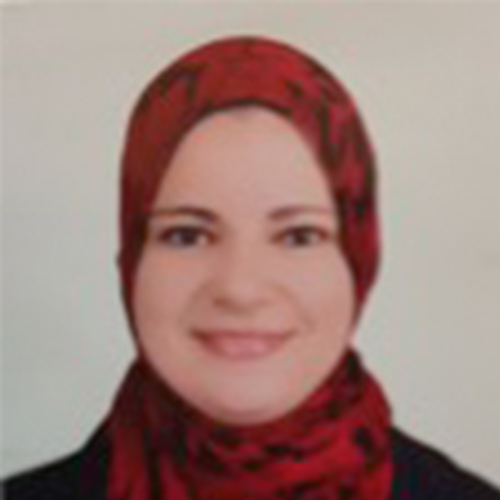
Medical & Health Sciences
Egypt
Cohort 6
Dr. Mona Abdel-Mottaleb obtained her B.Sc and Masters degree in Drug Technology from the faculty of Pharmacy in Ain Shams University, Egypt. Later she joined the institute of Pharmaceutical Technology in the university of Bonn where she obtained her PhD in 2011. Mona obtained then several postdoctoral fellowships in France and Germany before she took the position of an associate professor in Ain Shams University in Cairo. Her major area of expertise is the use of nanotechnology for enhanced dermal and transdermal drug delivery. She is a member of various scientific societies such as the American association for the advancement of science (AAAS), the controlled release society (CRS) and is also a 2019 fellow of Africa Science Leadership Program (ASLP) and the Future Africa initiative at the university of Pretoria and the global young academy (GYA). She received various scientific awards including the international publications award from Ain Shams university (2009-2020), The best research in Annual Congress of the European Society for Translational Medicine (2015) and the Egyptian State Encouragement Prize in Medical Sciences from the Academy of Scientific Research and Technology of Egypt (2018) and the medal of excellence of the first degree from the president of Egypt in 2019. Mona is currently working on the development of more efficient therapeutic approaches for cancer and infectious diseases and well as improved vaccination strategies.
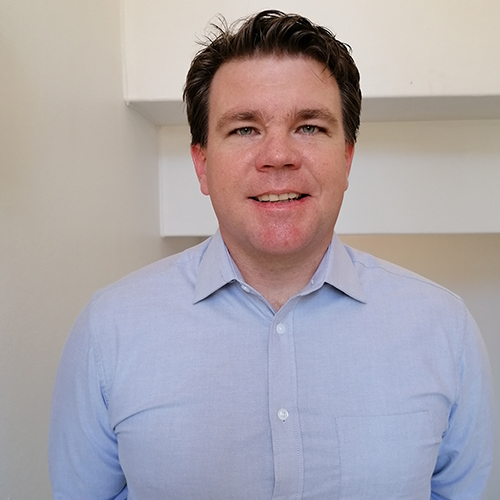
Geological, Environmental, Earth & Space Sciences
Zimbabwe
Cohort 6
Dr. Nicholas Simpson works with the Africa Climate & Development Initiative (ACDI), University of Cape Town. He is Chapter Scientist for the Africa chapter of the Intergovernmental Panel on Climate Change (IPCC) 6th Assessment contributing author to Chapter 1 (Complex Risk Framework), Chapter 8 (Economy, Poverty and Livelihoods), Chapter 9 (Africa) and Chapter 16 (Key Risks) of the IPCC. Nick's current research concentrates on the assessment and management of complex climate risk. In Africa, this includes assessment of responses to water scarcity, climate change literacy and perception, climate change finance and insurance, climate resilient development pathways and the adoption of renewable energy, climate change and the United Nations Security Council, and risk to Africa’s coastal heritage. His previous research extended security studies and criminology to the governance of new 'Anthropocene harmscapes’, exploring how, why and with what effect resilience has been employed as a means of understanding and responding to unanticipated and severe climate change events. In doing so his publications have coined the terms ‘climate gating’, ‘resilience policing’, and ‘partial functional redundancy’ through empirical analysis of the distributional characteristics and capabilities of forms of adaptation arising globally in response to climate insecurities. His PhD extended the practice of environmental assessment to better conceptualise human well-being and equitable participation. He has conducted empirical field work in 6 African countries and taught postgraduate courses in four different departments at the University of Cape Town including environmental, law, engineering and climate science departments.
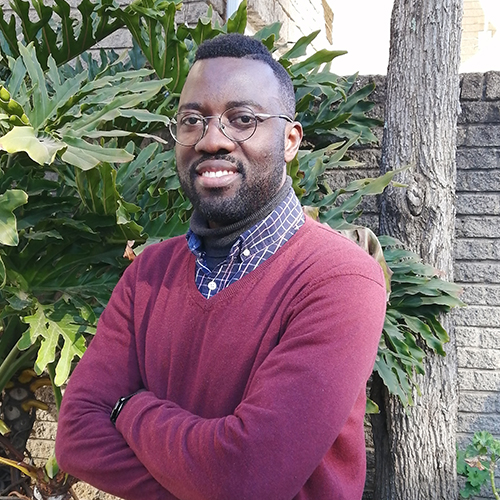
Agricultural & Nutritional Sciences
Nigeria
Cohort 6
Prof. Fawole is an Associate Professor in postharvest protection and preservation of horticultural crops at the University of Johannesburg, South Africa. He earned a BSc at Obafemi Awolowo University in Nigeria and an MSc at the University of KwaZulu-Natal, South Africa. In 2013 obtained a PhD in Postharvest Science and Technology from Stellenbosch University, before his appointment and promotion as a Lecturer and Senior Lecturer academic in 2016 and 2018, respectively at the same University. His industry-oriented research focuses on shelflife extension of horticultural crops. His research strives to understand the effects of various biotic and abiotic factors on horticultural crops' maturity and storage to develop appropriate postharvest management tools for stakeholders' economic and health benefit. Prof. Fawole is currently leading research on alternatives to plastics and synthetic chemicals in postharvest preservation of perishable horticultural products. He was awarded the National Research Foundation Y1-rating (Young Promising Scientist) in 2016.
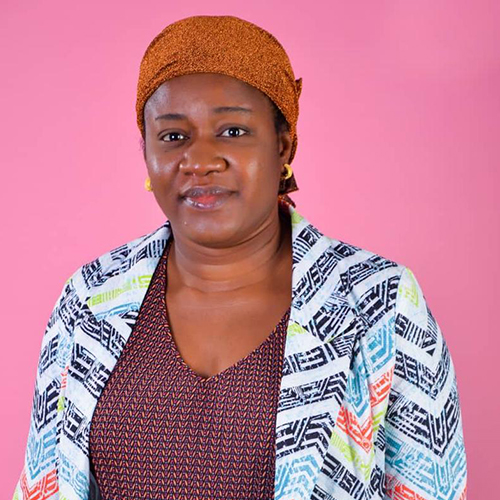
Agricultural & Nutritional Sciences
Nigeria
Cohort 6
Nusirat Elelu is a distinction graduate of Veterinary Medicine from University of Maiduguri, with a Master of Public Health from University of Ibadan and PhD majoring Epidemiology from University of Bristol, UK. She also spent a summer at Institute of Tropical Medicine, Portugal, where she underwent molecular-based training. She is a recipient of the prestigious Africa Research Excellence Fellowship that supported her Postdoctoral training at University of East London, UK. This year, she would be Board certified by the College of Veterinary Surgeon of Nigeria (Public Health specialty).
She began her academic career in 2010 as pioneer staff of newly established Faculty of Veterinary Medicine, Ilorin. She is presently an Associate Professor of Public Health and have so far supervised about 20 undergraduate/postgraduate students. She held several academic positions including Head of Department and Faculty Postgraduate Coordinator.
She mentors several young female students to pursue medical related discipline and serve as Academic Adviser of Student One Health Initiative, the first of its kind in Africa. She Chaired the Covid-19 Community Engagement Committee in her State, that ensured the grassroot population were sensitised to uptake preventive measures against the pandemic.
Her work utilizes epidemiological techniques to understand distribution and risk factors of zoonotic diseases to develop sustainable interventions, she specifically studys how much severe human febrile illnesses, vector-borne zoonoses are responsible for. She is also the lead researcher of an IFS-funded project. Ultimately, she hopes to become a research leader contributing to development of life-changing healthcare policies for Africa.
Pagination

Elected: